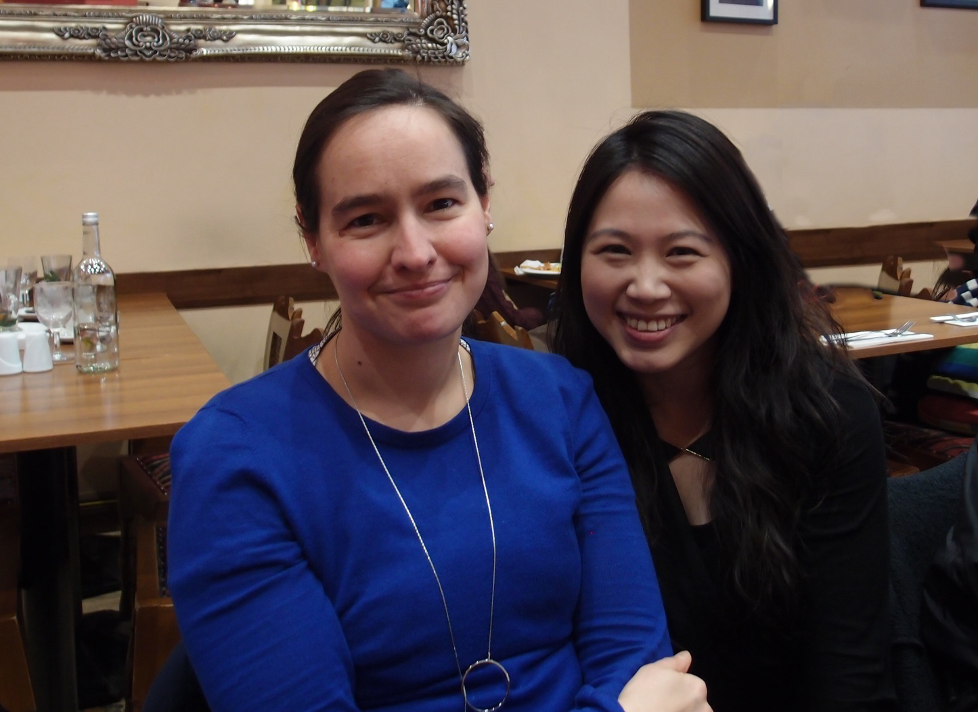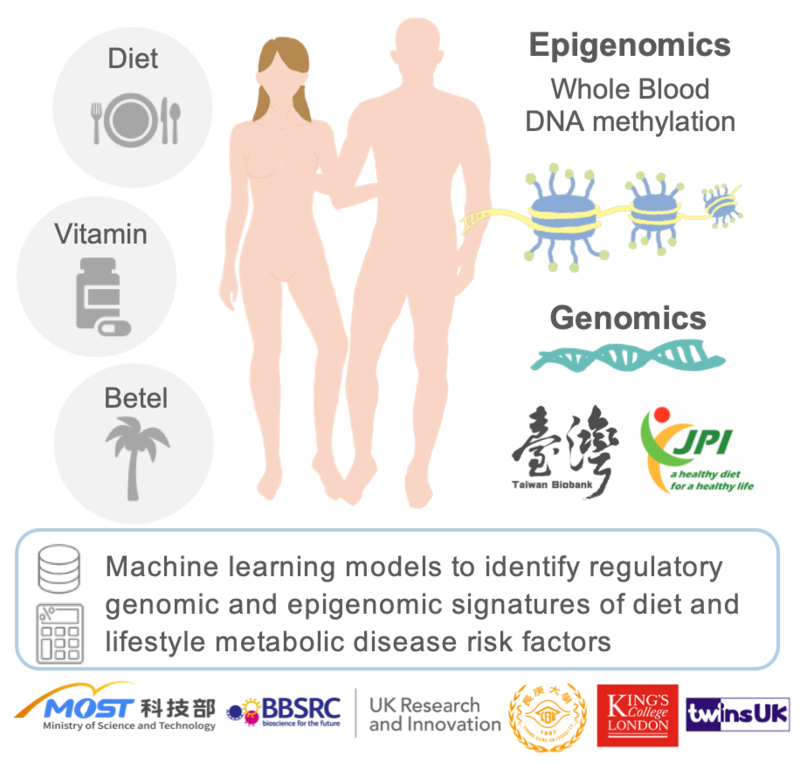Chang Gung University and King's College London Scientists Collaborate to Apply Artificial Intelligence to Identify Genomic and Epigenomic Signatures of Dietary and Lifestyle Risk Factors
FROM: GASE

"Dr. Jordana Bell from the KCL (on the left) and Dr. Pei-Chien Tsai from the CGU (on the right)."
King's College London (KCL), the UK's top-ranked university with a groundbreaking track record in analytical biology, is collaborating with Chang Gung University (CGU) on an epigenomic project funded by a MOST-BBSRC International Partnership Awards. Epigenetic modifications, such as DNA methylation, are an area of active research. It plays a key role in human development and disease, and is thought to regulate gene expression to influence phenotypic changes. The goal of this project is to apply newly developed machine learning models to identify regulatory genomic and epigenomic signatures of diet and lifestyle metabolic disease risk factors in Taiwanese and UK cohorts. This research collaboration brings together international scientists to analyze multi-omics data from the Taiwan Biobank and European cohorts, including TwinsUK, and also enhances the analysis of data generated within the JPI HDHL DIMENSION consortium, which examines the regulatory genomic signatures of diet-induced cardiometabolic health in European cohorts. In addition, one of the highlights of the collaboration is to train young career researchers and build their international network.
CGU is one of the leading research universities in Taiwan, conducting international collaborative research around the world. Dr. Jordana Bell and Dr. Pei-Chien Tsai are long-time research collaborators who now form a new multidisciplinary research team to explore new and topical questions about how the molecular signatures of diet and lifestyle affect human health. This project builds on previous collaborations with leading experts in human epigenomics, including aging (Prof. Steve Horvath, UCLA) and environmental epigenomics (Prof. Andrea Baccarelli, Columbia University). The KCL group has extensive longitudinal clinical data and experimental results, as well as a strong track record of quantifying dietary intake and lifestyle factors. The CGU group has the analytical skills to perform machine learning and supervised modeling with unique lifestyle profiles such as betel quid use and access to samples from Chang Gung Memorial Hospital, the largest medical institution in Taiwan. The two teams will take advantage of this excellent collaborative opportunity to leverage their expertise, combine international large-scale datasets, and provide capacity building through young career researcher training. Their strengths and upcoming publications will expand our existing knowledge in this area.

''The study design of this international collaborative project between CGU and KCL, funded by MOST-BBSRC.''